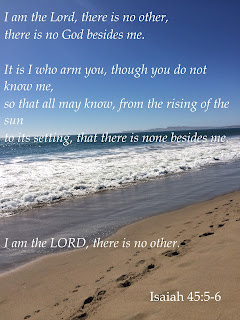The eighth
day of Christmas traditionally was celebrated as the Circumcision of
Jesus—honoring His rite of initiation as a member of God’s people, confirming
the essential Jewish roots of Jesus and Christianity itself. The name of the feast was changed to The
Solemnity of Mary, Mother of God in 1969 to honor Mary as the Mother of God.
Both
designations recall that Jesus is both truly divine and truly human. Obviously, the ritual of “circumcision,” still
sacred to Judaism, can be experienced only by a human being with an authentic
human body. And Mary’s title of “Mother
of God” also affirms the astounding fact of Jesus’ humanity. In bearing the infant Jesus in her womb, Mary
also bore the Divine and Eternal Word.
The divinity and humanity of Christ were not to be separated but,
rather, celebrated as an astonishing reality of God’s provident love for
humanity. (Catechism of the Catholic
Church, Section 3, Chapter 2, Paragraph 495)
The gospel
passage from Luke’s infancy narrative recalls the joys of Christmas. Guided by a chorus of angels, the shepherds came
to the manger to pay homage to a “Savior, who is the
Messiah.” (Luke 2:16-21). That “savior” is a vulnerable infant in the
arms of His mother Mary—what more could the gospel do to emphasize the humanity
of Jesus?
Luke
presents Mary as pondering these marvels, writing, “she
kept all these things, reflecting on them in her heart.” Later she and Joseph would have the
infant circumcised, further affirming His place within the people Israel.
There are
other Bible passages that reflect the joy of this moment, as well. The Book of Numbers cites the famous blessing
that God instructed Moses to give to the people, a blessing repeated throughout
history: “The Lord bless you and keep you! The Lord let his
face shine upon you and be gracious to you!
The Lord look upon you kindly and give you peace.” (Numbers 6:22-27). Psalm 67 praises God’s abiding love and care
for Israel—a love that would find its most complete expression in the
appearance of Jesus Himself: “May God bless us in his
mercy! May the peoples praise, you, O
God; may all the peoples praise you!” (Psalm
67:2-8)
Saint Paul’s
Letter to the Galatians contains his only reference to Mary when he notes that
Jesus, “God’s Son,” was “born of a woman, born under the law”; a description that captures at
once, Jesus’ divine status as God’s Son and His humanity as one “born
of a woman” and born
Jewish, “under the Law.” (Galatians
4:4-7). According to St. Paul, the
mission of Jesus was to affirm our own status as children of God. Now we, too, along with Christ, can pray to
God as our “father.” The Spirit enables
us to call God “Abba, Father.” Abba is a
diminutive for “father” (as in “Dad”, or “Papa”), used as an affectionate term
by both children and adults to address a beloved parent (Imma is the parallel
term in Hebrew for “mother”). At a
moment of great anxiety, Jesus Himself prayed to His Father as Abba in the
Garden of Gethsemane (Mark 14:36).
Today we put 2020 behind us and welcome 2021. I doubt if anyone will think nostalgically about the tragic year just past. So much loss of life, so many hardships, so much strife, so many divisions in our own country. But this feast of Mary, Mother of God, and the tender love of God for us that it proclaims, can be a source of hope. God hasn’t abandoned us and will be with us as we look to a renewed future.


















